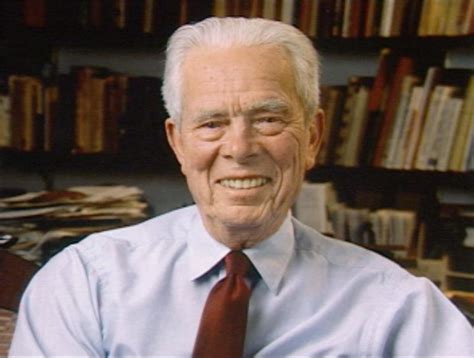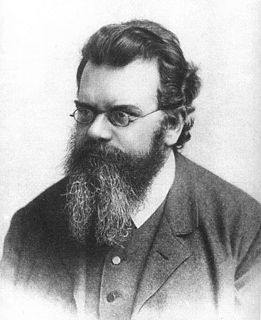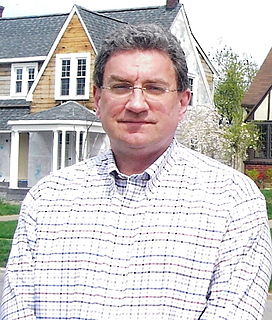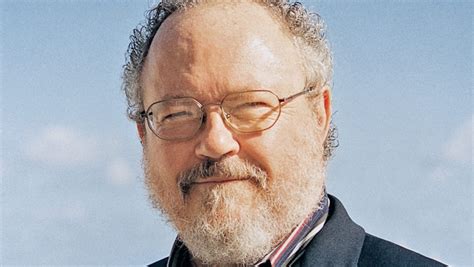Top 148 Gases Quotes & Sayings - Page 3
Explore popular Gases quotes.
Last updated on April 17, 2025.
On Earth Day I made a commitment to reduce our emissions of greenhouse gases to 1990 levels by the year 2000. And I asked for a blueprint on how to achieve this goal. In concert with all other nations, we simply must halt global warming. It is a threat to our health, to our ecology, and to our economy. I know that the precise magnitude and patterns of climate change cannot be fully predicted. But global warming clearly is a growing, long-term threat with profound consequences. And make no mistake about it, it will take decades to reverse.
... The reality is that atmospheric CO2 has a minimal impact on greenhouse gases and world temperature. Water vapor is responsible for 95 percent of the greenhouse effect. CO2 contributes just 3.6 percent, with human activity responsible for only 3.2 percent of that. That is why some studies claim CO2 levels are largely irrelevant to global warming.
All they do is warm their seats for their long tenures and eventually even their seats get dilapidated with the amount of money they hog in illegally and the only way it comes out is by tilting their huge pot-bellied frames to one side and emitting poisonous gases that not only depreciate their beloved seats but also the nation as a whole and then they shout 'Global Warming.' Hallelujah!
It would be rash to conclude that, on balance, the environment of the globe as a whole is either deteriorating or improving, or that the survival of the societies we know depends upon filling a simple set of prescriptions. It is all too complex and dynamic, whether it involves managing greenhouse gases or Nile snails... The future condition of the globe's interlocking natural and social systems depends more on human behavior than on the further investigation of natural processes, however desirable that may be.
We've continued progress in the six months since Trump got elected, and the good thing about what we're doing is that success begets success. As we bring down greenhouse gases, for example, we've closed half of the coal-fired power plants in the country in recent years. There's more impetus to try to close the other half because you can see that it is working. So, you know, I had hoped that Trump would not do that, and it doesn't make any sense to me, but regardless, it is not as cataclysmic as it could be.
Who ... is not familiar with Maxwell's memoirs on his dynamical theory of gases? ... from one side enter the equations of state; from the other side, the equations of motion in a central field. Ever higher soars the chaos of formulae. Suddenly we hear, as from kettle drums, the four beats 'put n=5.' The evil spirit v vanishes; and ... that which had seemed insuperable has been overcome as if by a stroke of magic ... One result after another follows in quick succession till at last ... we arrive at the conditions for thermal equilibrium together with expressions for the transport coefficients.
A lot of what is done by the climate lobby is anti-science. But there is some science behind it. Like, there are greenhouse gases, and they do contribute to warming. But if you look at the last, say, 160 years, the first 80 of that period, they went up about four-tenths of a degree. And now, the second 80 that CO2 has increased by, what, 30 percent or something, it's gone up five-tenths of a degree. And there's been in the last 30 or 40 years, there's been no real increase in storms or bad weather.
I think when it comes to climate change, the single most important thing in the world is for the United States' Congress to pass an effective bill that will put a price in carbon because if it starts costing something to emit carbon, this will provide an incentive, people do act on the basis to some extent of economic incentives to emit fewer greenhouse gases.
Saddam Hussein had a lengthy history of reckless and sudden aggression. He cultivated ties to terror -- hosting the Abu Nidal organization, supporting terrorists, and making payments to the families of suicide bombers. He also had an established relationship with Al Qaida -- providing training to Al Qaida members in areas of poisons, gases and conventional bombs. He built, possessed, and used weapons of mass destruction.
Extreme weather like the droughts in Russia, China and Brazil and the flooding in Pakistan and Australia [in 2010] have contributed to a level of food price volatility we haven't seen since the oil crisisof 40 years ago. Unfortunately, this could be just a taste of things to come because in the next few decades the build-up of greenhouse gases already in the atmosphere could greatly increase the risk of droughts, flooding, pest infestation and water scarcity for agriculture systems already under tremendous stress.
I've been vegan for 15 years, and it turns out it makes a very big impact on the environment to eat fewer animal products, which cause more greenhouse gases than all of transportation combined. The United Nations did a study just over two years ago, and that blew my mind. I started thinking that if people are vegetarian for just one day a week, that makes a huge difference!
If the relatively rich participating countries want to stabilize atmospheric concentrations of greenhouse gases, they will have to pay at least some poor countries to reduce their emissions. Achievement of substantial reduction in this way implies international transfers of wealth on a scale well beyond anything in recorded history. There is no effective political support for such a Herculean effort, particularly in the United States.
One surprise is how deeply the food system is implicated in climate change. I don't think that has really been on people's radar until very recently. 25 to 33 percent of climate change gases can be traced to the food system. I was also surprised that those diseases that we take for granted as what will kill us - heart disease, cancer, diabetes - were virtually unknown 150 years ago, before we began eating this way.
... the consensus of the scientific community has shifted from skepticism to near-unanimous acceptance of the evidence of an artificial greenhouse effect. Second, while artificial climate change may have some beneficial effects, the odds are we're not going to like it. Third, reducing emissions of greenhouse gases may turn out to be much more practical and affordable than currently assumed.
If Africa is left behind, she is going to continue pumping greenhouse gases into the atmosphere, especially carbon. She's going to continue logging the forests, she's going to continue burning charcoal, she is going to continue practicing agricultural activities that destroy the environment, and sooner or later Africa's problem will become a global problem.
It's very important that we expand our use of clean energy and make a long-term commitment to it. Biodiesel and ethanol are better for the environment and for the air we breathe. The use of biodiesel is a positive step toward minimizing pollutive emissions and greenhouse gases. By focusing on school buses, we can affect the health and wellbeing of the people most susceptible to that pollution - our children - today.
Men are rapists, batterers, plunderers, killers; these same men are religious prophets, poets, heroes, figures of romance, adventure, accomplishment, figures ennobled by tragedy and defeat. Men have claimed the earth, called it 'Her'. Men ruin Her. Men have airplanes, guns, bombs, poisonous gases, weapons so perverse and deadly that they defy any authentically human imagination.
In the vaults of our hearts and brains, danger waits. All the chambers are not lovely, light and high. There are holes in the floor of the mind, like those in a medieval dungeon floor - the stinking oubliettes, named for forgetting, bottle-shaped cells in solid rock with the trapdoor in the top. Nothing escapes from them quietly to ease us. A quake, some betrayal by our safeguards, and sparks of memory fire the noxious gases - things trapped for years fly free, ready to explode in pain and drive us to dangerous behavior.
war with poison and chemicals was not so rare in the ancient world ... An astounding panoply of toxic substances, venomous creatures, poison plants, animals and insects, deleterious environments, virulent pathogens, infectious agents, noxious gases, and combustible chemicals were marshalled to defeat foes - and panoply is an apt term here, because it is the ancient Greek word for 'all weapons.
With time environmental issues got much more complicated. It is pretty easy, if you know what you are doing, to stop a company from pouring poison into a lake where kids swim. It is much harder to address all the myriad greenhouse gases emitted by different sources - from petrochemical refineries to hundreds of millions of peasants cutting down trees for their incredibly inefficient cook stoves.
Many people I've met believe that plants are made up of soil-that the tree outside your house, for example, is mostly made from the soil in which it grew. That's a common mistake. That tree is mostly made up of one of the gases in our air (carbon dioxide) and water (hydrogen and oxygen). Trees are solidified air and sunlight.
Man is about to be an automaton; he is identifiable only in the computer. As a person of worth and creativity, as a being with an infinite potential, he retreats and battles the forces that make him inhuman. The dissent we witness is a reaffirmation of faith in man; it is protest against living under rules and prejudices and attitudes that produce the extremes of wealth and poverty and that make us dedicated to the destruction of people through arms, bombs, and gases, and that prepare us to think alike and be submissive objects for the regime of the computer.
We could replace people with fossil fuels, have higher and higher levels of industrialization, of agriculture, of production, without thinking of the green-house gases we were admitting, and climate change is really the pollution of the engineering paradigm, when fossil fuels drove industrialism. To now offer that same mindset as a solution is to not take seriously what Einstein said: that you can't solve the problems by using the same mindset that caused them.
Global warming results not from the emission of greenhouse gases into the atmosphere, but from an unusually high level of solar radiation and a lengthy - almost throughout the last century - growth in its intensity. It is no secret that when they go up, temperatures in the world's oceans trigger the emission of large amounts of carbon dioxide into the atmosphere. So the common view that man's industrial activity is a deciding factor in global warming has emerged from a misinterpretation of cause and effect relations.
Both rich and poor nations have a common stake in policies that put the globe on a sustainable development path. The conflict is less between poor and rich countries than between the broad interests of people and the narrow interests of extractive industries. We need to find our way towards some kind of global regime that reduces emissions of the greenhouse gases, but well-off nations need to transfer the technology to make this possible, rather than viewing this shift as one more opportunity for private industry to profit.
The climate crisis is both the easiest and the hardest issue we have ever faced. The easiest because we know what we must do. We must stop the emissions of greenhouse gases. The hardest because our current economics are still totally dependent on burning fossil fuels, and thereby destroying ecosystems in order to create everlasting economic growth.
I want to travel on a train that smells like snowflakes. I want to sip in cafes that smell like comets. Under the pressure of my step, I want the streets to emit the precise odor of a diamond necklace. I want the newspapers I read to smell like the violins left in pawnshops by weeping hobos on Christmas Eve. I want to carry luggage that reeks of the neurons in Einstein's brain. I want a city's gases to smell like the golden belly hairs of the gods. And when I gaze at a televised picture of the moon, I want to detect, from a distance of 239,000 miles, the aroma of fresh mozzarella.



























